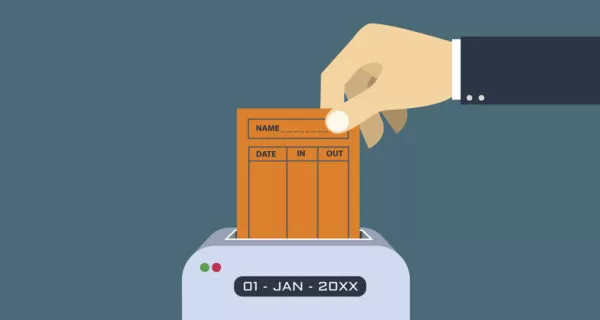Time rounding is common practice used by employers of hourly employees to simplify their payroll calculations. Although this practice is legal, federal and state guidelines do exist on how to fairly round “hours worked” by employees. Recently, the California Supreme Court offered additional parameters on the use of time rounding, holding that such practices are not permissible in the context of providing non-exempt (hourly) employees their 30-minute unpaid meal periods.
Under California law, employers must generally provide hourly employees with one unpaid, 30-minute meal period that begins no later than the end of the fifth hour of work and another 30-minute meal period that begins no later than the end of the tenth hour of work. If a meal period is provided later than the fifth hour of work, shorter than 30 minutes, or missed altogether, the employer may be responsible for paying a meal period premium of one additional hour of pay at the employee’s regular rate of pay for each workday that the meal period is not provided.
The CA Supreme Court’s decision arose from a long-running class-action lawsuit challenging an employer’s time-keeping system which rounded punches to the nearest 10 minutes, including during meal periods. In some instances, employees with meal periods as short as 21 minutes were treated as having been provided with compliant 30-minute meal periods, and thus, were not paid the meal period premiums to which they were entitled.
The Court held that although time-rounding practices are generally lawful in the context of calculating total hours worked for pay and overtime purposes, they are not lawful when applied to meal periods.
Key Take-Aways for California Employers
Employers are advised to check their electronic timekeeping systems to ensure that rounding is not being applied to meal periods for California non-exempt employees.
Additionally, employers should ensure that their electronic timekeeping system includes a method for accurately tracking (1) when an employee’s meal period is shorter than 30 minutes, delayed, or not taken, and (2) the employee’s decision to voluntarily waive a 30-minute meal period (beginning prior to the end of the fifth hour of work), despite being timely “provided” by the employer. By tracking such waivers, the employer can effectively limit its expenses related to meal period premium pay.
If you have questions concerning your obligations to California employees, please contact Christy Kotowski at [email protected].
Christy Kotowski joined Outside GC’s California team as Senior Counsel in 2019. Based in the San Francisco Bay Area, Christy handles a broad range of complex workplace issues at the federal, state and local levels. Previously, she worked as in-house employment counsel for several large companies, and started her legal career in the Silicon Valley office of Morrison & Foerster, one of California’s oldest and largest law firms. She can be reached at [email protected] or 510-748-0930.
